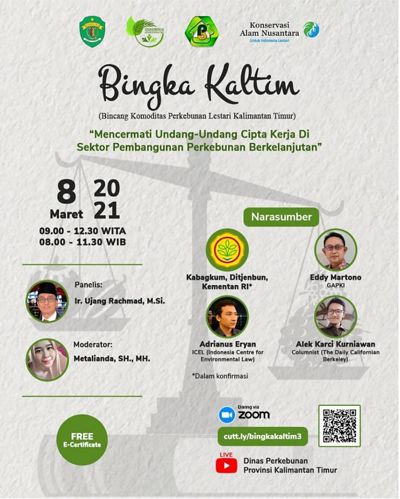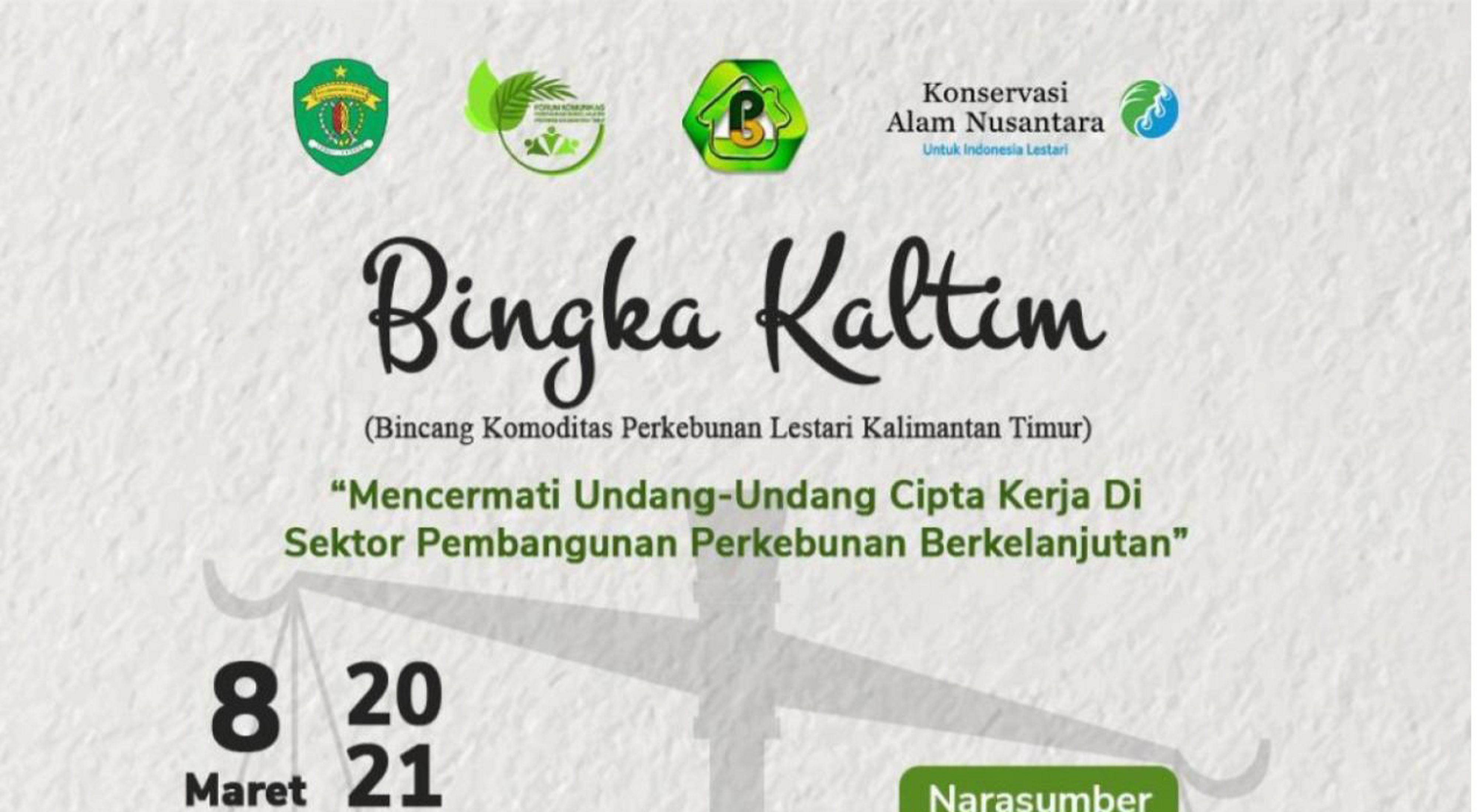BINGKA KALTIM: Job Creation Law Review with regards to the Sustainable Plantation Development Sector
In 2020, the contribution of agricultural Gross Regional Domestic Product (GRDP) in the broad sense in East Kalimantan increased by 0.86 per cent. Additionally, more than half, or 56.33 per cent, came from the plantation subsector with an absolute value in actual products at Rp17.2 trillion (US$1.12 billion). Therefore, the plantation subsector is essential in supporting the people's economy through smallholder and large plantations.
The 2020 Law No. 11 on Job Creation affects the plantation subsector—at least 33 of the 118 articles in the 2014 Law No. 39 on Plantation are affected. A separate Government Regulation provisioned the regulatory norms from the 33 articles of the Plantation Law that the Job Creation Law invalidated. Additionally, permit arrangements would need to be regulated by the central government even though it may devolve such authority to the local government.

The 2020 Law No. 11 on Job Creation affects the plantation subsector—at least 33 of the 118 articles in the 2014 Law No. 39 on Plantation are affected. A separate Government Regulation provisioned the regulatory norms from the 33 articles of the Plantation Law that the Job Creation Law invalidated. Additionally, permit arrangements would need to be regulated by the central government even though it may devolve such authority to the local government.
Another change caused by the Job Creation Law is the conception of business activities. From what was initially based on a business permit (license approach) to standards and risk-based (risk-based approach/RBA) application. Palm oil is included in the high-risk business permit category. Business sectors that fall into this category must have a business identification number, with requirements for the suitability of space utilisation activities, environmental permits, building permits and service-worthy certifications.
This 180-minute webinar reviewed how the Job Creation Law affected the sustainable plantation development sector.


